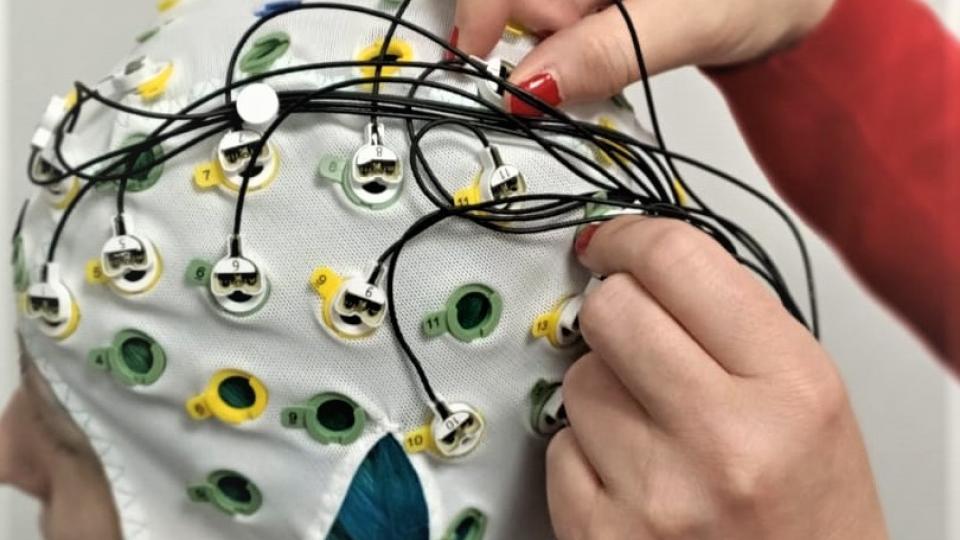
Research at the School of Human and Social Sciences
Welcome to Research in SHSS
In the School of Human and Social Sciences, we are passionate about conducting and sharing internationally excellent research on pressing issues affecting individuals and our society.
We all share a unified research mission – to inclusively create and share knowledge which impacts meaningfully and sustainably on social and theoretical issues.
Jump to each section of the page:
Our mission
Our mission is to inclusively create and share knowledge and understanding which impact meaningfully and sustainably on social and theoretical issues.
Our topics and participants represent diverse and often seldom heard populations, including our student base and local communities. Our activities are designed to improve wellbeing and security, tackle inequalities, enhance scientific knowledge and promote equality.
We seek to maximise theoretical and practical understanding of behaviour, mental and physical health and investigative processes, and to generate positive change in wellbeing, access to justice and professional practice. We deliver project findings where they will generate genuine improvement and change, including practitioners, policymakers and the public.
Our research areas
Education and development
We have researchers working on improving learning, equity and inclusion in all areas of education. We inform emerging trends and issues in education, including inclusive pedagogic practices, equity in achievement, dialogic pedagogy, technologies in education, leadership and school improvement, multilingualism, migration and child development.
All of our education and development researchers are guided by the desire to help create learning environments in which all children will reach their true potential.
Investigative sciences
Our investigative scientists are interested in fingermark visualisation, anthropology, toxicology, medicine and entomology. These include enhancing fingermark visualisation on plastics and thermal papers and research within the field of forensic anthropology and bioarchaeology that also includes aspects of the medicolegal systems and humanitarian forensics.
There is also research in the fields of forensic toxicology and medicine to enhance knowledge of drug facilitated sexual assault and the chemometric identification of drugs.
Security, justice and society
What makes us ‘secure’? Our researchers undertake critical research in domestic and international themes linked with governance, security and criminal justice structures.
They aim to interrogate and deconstruct complex social issues including drug and addiction policy, prejudicial stereotypes, decolonisation, migration dynamics, sustainability and the contemporary landscapes of cybercrime and cybersecurity. All with the intention of advancing and improving justice, security and societal wellbeing.
Cognition, neuroscience and addiction
Can we simulate a transformative experience brought about by narcotics just by using a virtual reality headset?
We are looking at many areas of brain function and cognitive thought, including our perception of time and space in the real world and virtual reality, to try and answer some of the more profound questions around how and why we think and feel in a certain way.
We are also deeply interested in understanding the effect of substances on those processes, and how we can effectively intervene, especially in life threatening situations.
Health and wellbeing
Our researchers want to improve wellbeing in three areas:
- Nutritional therapy – by examining the profound effects of diets and metabolism on human health
- Mental health and trauma – by dissecting the layers of stigma, the impact of migration and trauma, post-traumatic growth, perceptions of body image, the psychological toll of lockdowns and the nuances of bereavement experiences
- Academic success – by exploring the intricate relationship between health psychology and educational achievement
Featured research projects
Falling in love in video games
Professor Mark Coulson's work focuses on the psychology behind relationships within games, including the ability to use these often optional relationships as a way to explore your own identity.
The Lost Dads Project
Professor Ben Hine's Lost Dads research project focuses on the aftermath of divorce and how it impacts the people involved, as well as the need for increased understanding, support and recognition.
Multimodal forensic investigation of mass graves
Dr Xenia Kyriakou's research project focuses on developing technology to detect mass graves and exhume them whilst preserving forensic evidence and repatriation of the deceased.
Racial linguistic perceptions of speech in the context of criminal investigations
Dr Viktoria Magne's research focuses on how non-native English speakers are often pre-judged based on their accent, and how this can impact not only everyday life, but also criminal investigations.
Join our research community
We support students to carry out research in a diverse range of areas. Our expert staff are available to offer supervision and are happy to consider your application.
Visit our research degrees page to explore the specific PhD opportunities available and find out more about our research degree supervisors.
Early Career Researcher Network
Our Early Career Researchers (ECR) group supports emerging scholars across diverse fields including psychology, criminology, sociology, forensic science, politics and international relations, education and nutritional therapy.
UWL's Early Career Networkers Network brings together young academics from across the University to collaborate and shape each other's research.
Contact us
For more information please email our research lead, Professor Ben Hine: ben.hine@uwl.ac.uk
Find out more
-
Research Centres and Groups
Find out about our multi-disciplinary areas of expertise, PhD research, and teaching.
-
Research impact
Learn how our PhD research has helped communities locally, nationally and internationally.
-
The Graduate School
If you are interested in studying for a PhD or Professional Doctorate, the Graduate School is here to support your research.
















